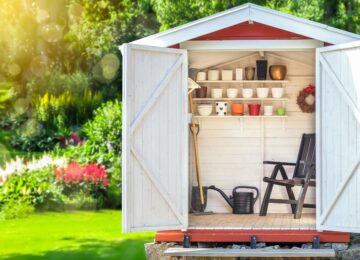In the landscaping business, having the right equipment can make all the difference in terms of efficiency, productivity, and the quality of your work. One of the most versatile pieces of equipment for any landscaping business is the mini loader. Mini loaders are compact yet powerful machines that can handle a variety of tasks, from moving soil and mulch to transporting heavy materials and assisting in tree care. In this blog, we’ll explore the essential factors to consider when choosing the right mini loader for your landscaping business, ensuring you make a wise investment that meets your needs.
Understanding Mini Loaders
Mini loaders, also known as compact utility loaders or skid steer loaders, are smaller versions of traditional loaders. They are designed to operate in confined spaces while still providing substantial lifting and moving capabilities. These machines are equipped with a variety of attachments, making them incredibly versatile for landscaping tasks.
Key Features of Mini Loaders
Before diving into the specifics of choosing a mini loader, it’s important to understand the key features that define these machines:
- Compact Size: Mini loaders are designed to work in tight spaces where larger machinery would be impractical.
- Versatility: With a range of attachments such as buckets, augers, trenchers, and pallet forks, mini loaders can handle multiple tasks.
- Ease of Use: These machines are relatively easy to operate, making them suitable for both experienced operators and newcomers.
- Maneuverability: Mini loaders have excellent maneuverability, allowing them to navigate around obstacles and in narrow areas.
- Power: Despite their small size, mini loaders are powerful and can handle significant workloads.
Factors to Consider When Choosing a Mini Loader
When selecting a mini loader for your landscaping business, several factors come into play. Evaluating these factors will help you choose a machine that aligns with your operational needs and business goals.
1. Job Requirements
The first step in choosing the right mini loader is to assess the specific needs of your landscaping business. Consider the types of tasks you perform regularly. For example:
- Material Handling: If you frequently move soil, mulch, gravel, or other materials, you’ll need a mini loader with a high lifting capacity and appropriate bucket attachments.
- Tree Care: For tasks such as stump grinding, tree planting, and removing tree debris, look for mini loaders that offer specialized tree care machinery
- Digging and Trenching: If your projects involve digging or trenching, ensure the mini loader can accommodate attachments like trenchers and augers.
2. Size and Weight
The physical dimensions and weight of the mini loader are crucial, especially if you work in areas with limited access. A compact machine that can navigate through narrow gates and around landscaping features without causing damage is ideal. Additionally, consider the weight of the loader to avoid soil compaction and damage to delicate landscapes.
3. Lifting Capacity
Lifting capacity is a critical factor, as it determines how much weight the loader can handle. Evaluate the typical loads you need to move and choose a mini loader with a lifting capacity that exceeds these requirements. This ensures you can handle heavy materials safely and efficiently.
4. Engine Power
The engine power of a mini loader affects its performance, particularly in demanding tasks. Higher horsepower engines provide better performance, especially when using power-intensive attachments. However, balance your need for power with fuel efficiency to keep operational costs in check.
5. Attachments and Compatibility
One of the biggest advantages of mini loaders is their ability to use various attachments. Ensure that the mini loader you choose is compatible with a wide range of attachments that meet your landscaping needs. Common attachments include:
- Buckets: For moving soil, gravel, and other materials.
- Augers: For digging holes for planting trees and shrubs.
- Trenchers: For installing irrigation systems or creating drainage.
- Grapples: For handling large tree debris and branches.
- Pallet Forks: For transporting heavy landscaping materials like pavers and stones.
6. Ease of Maintenance
Regular maintenance is essential to keep your mini loader in good working condition. Choose a machine that offers easy access to engine components and other critical parts, making routine maintenance tasks simpler. Reliable dealer support and availability of spare parts are also important considerations.
7. Operator Comfort
Operator comfort and ergonomics are often overlooked but play a significant role in productivity. Look for mini loaders with comfortable seating, intuitive controls, and good visibility. A machine that minimizes operator fatigue will result in more efficient and safer operation.
8. Durability and Build Quality
Investing in a durable and well-built mini loader will pay off in the long run. Consider machines made from high-quality materials with robust construction. Check for features such as reinforced arms and frames that can withstand the rigors of landscaping work.
9. Budget and Financing Options
Your budget will significantly influence your choice of mini loader. While it’s important to stay within your financial means, avoid compromising on essential features and quality. Explore financing options that can help you acquire a higher-quality machine without straining your finances.
10. Brand Reputation and Support
The brand reputation and the support network of the mini loader manufacturer are crucial. Opt for brands with a proven track record of reliability and excellent customer service. Vermeer, for instance, is renowned for its high-quality machinery and exceptional after-sales support, ensuring you receive assistance when needed.
Popular Mini Loader Models for Landscaping
To help you get started, here are a few popular mini loader models that are well-suited for landscaping businesses:
1. Vermeer S925TX
The Vermeer S925TX mini loader offers versatility and power with its three engine options. It is designed for easy maneuverability in tight spaces and can handle a variety of landscaping tasks. With a robust build and a range of compatible attachments, it’s a great choice for any landscaping business.
2. Vermeer CTX100
The Vermeer CTX100 is another excellent option, featuring a powerful 40 hp engine and a greater fuel tank capacity. It offers impressive lifting capacity and performance, making it ideal for more demanding landscaping projects. Its compact size and advanced features ensure efficient operation and minimal downtime.
3. Bobcat MT55
The Bobcat MT55 mini loader is known for its compact design and versatility. It offers excellent maneuverability and a wide range of attachments, making it suitable for various landscaping tasks. The MT55 is also designed for ease of use and maintenance, ensuring reliable performance.
Conclusion
Choosing the right mini loader for your landscaping business involves careful consideration of your specific needs, job requirements, and budget. By evaluating factors such as size, lifting capacity, engine power, and attachment compatibility, you can make an informed decision that enhances your operational efficiency and productivity.











